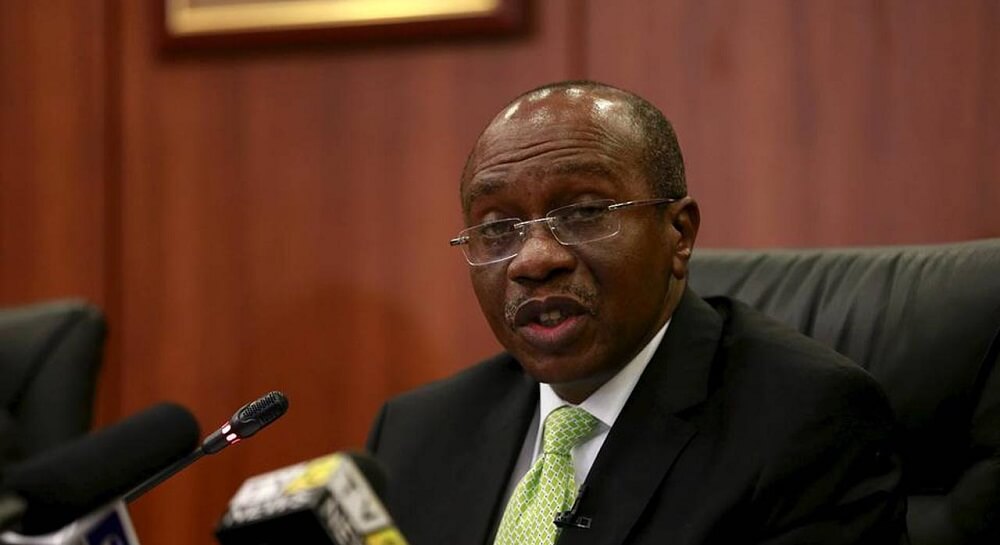Why CBN Did Not Increase Benchmark Lending Rate Despite Inflationary Pressures—Emefiele
The Monetary Policy Committee of the Central Bank of Nigeria on Monday voted to hold the current monetary policy stance as a precautionary measure to safeguard the economy from financial shocks which may be exerted by the Russia-Ukraine war.
The committee at its meeting held at the apex bank’s headquarters in Abuja retained the MPR at 11.5 per cent; held the asymmetric corridor constant at +100/-700 basis points around the MPR; retained the Cash Reserves Ratio at 27.5 per cent; and left the Liquidity Ratio unchanged at 30 per cent.
Advertisement
At the end of the meeting, three members voted to raise MPR by 25-basis points, one member voted to raise MPR by 50-basis points, while six members voted to hold all parameters constant.
There had been concerns about the marginal increase in headline inflation (year-on-year) to 15.70 per cent in February 2022 from 15.60 per cent in January 2022, a 0.10 percentage point uptick.
This increase was largely attributed to a rise in the core component to 14.01 per cent in February 2022 from 13.87 per cent in January 2022, while food prices moderated marginally.
The rise in core inflation was mostly due to rising energy prices as a result of the current scarcity of Premium Motor Spirit, rise in the cost of Automotive Gas Oil (AGO), and hike in electricity tariff.
Advertisement
But explaining the rationale for the decision at a time when the country is experiencing inflationary pressures, the Governor, Central Bank of Nigeria, Mr Godwin Emefiele noted that while growth has continued to improve, members are of the view that inflation was confronted with upward pressure due to emerging risks within the domestic and external environment.
He noted that the substantial upward push to price levels is being influenced by supply-side factors such as the scarcity of Premium Motor Spirit, persisting insecurity and backlash from the Russia-Ukraine war.
These factors, according to him, require a careful and focused policy intervention to address and resolve them.
In the light of this, the Governor said the MPC urged the CBN to continue using the tools at its disposal, while increasing its collaboration with the fiscal authority to ensure that inflation is adequately reined in and growth is returned to a strong and sustainable path.
The Committee, according to the CBN Governor, also encouraged the Apex bank to continue the use of its intervention mechanism to deploy funds to output-stimulating and employment-generating sectors of the economy.
Advertisement
In its consideration as to whether to hold, tighten, or loosen, Emefiele said the MPC members remained concerned that the global situation on rising prices may continue in the near term.
However, he added that this may begin to moderate if deliberate and urgent actions are taken by both the monetary and fiscal authorities to correct the rising inflation.
On another hand, he said the Committee was satisfied that the use of the Bank discretionary CRR policy should be deployed more aggressively to control the level of money supply in the economy.
On the argument for tightening in order to rein in the rising price level, he said the MPC members were of the view that given the fragile state of the current GDP growth and the potential external and domestic headwinds from the Russia-Ukraine war, a contractionary policy stance would stifle the expected investment expansion needed to drive growth and absorb the shocks in Nigeria.
“MPC also feels that not only would tightening reverse the steady improvement recorded in credit expansion, it is also of the view that tightening would not necessarily tame the inflation, particularly where the marginal decline is relatively not yet sustainable,” he added.
On the argument to loosen the benchmark lending rate, Emefiele said the Committee felt that loosening would trigger further liquidity surfeit and fuel inflationary pressure as available funds outstrip the economy’s absorptive capacity.
Advertisement
He said the MPC members also felt that loosening would trigger foreign exchange demand pressure, as the excess liquidity would exert demand pressure on the forex market and trigger a naira depreciation which would also fuel inflation.
He added, “Based on the foregoing, the Committee decided to adopt a hold stance as it would indicate a precautionary and consistent policy stance with the prevailing economic conditions particularly as further economic and financial shocks are exerted from the ongoing Russia-Ukraine war.”



